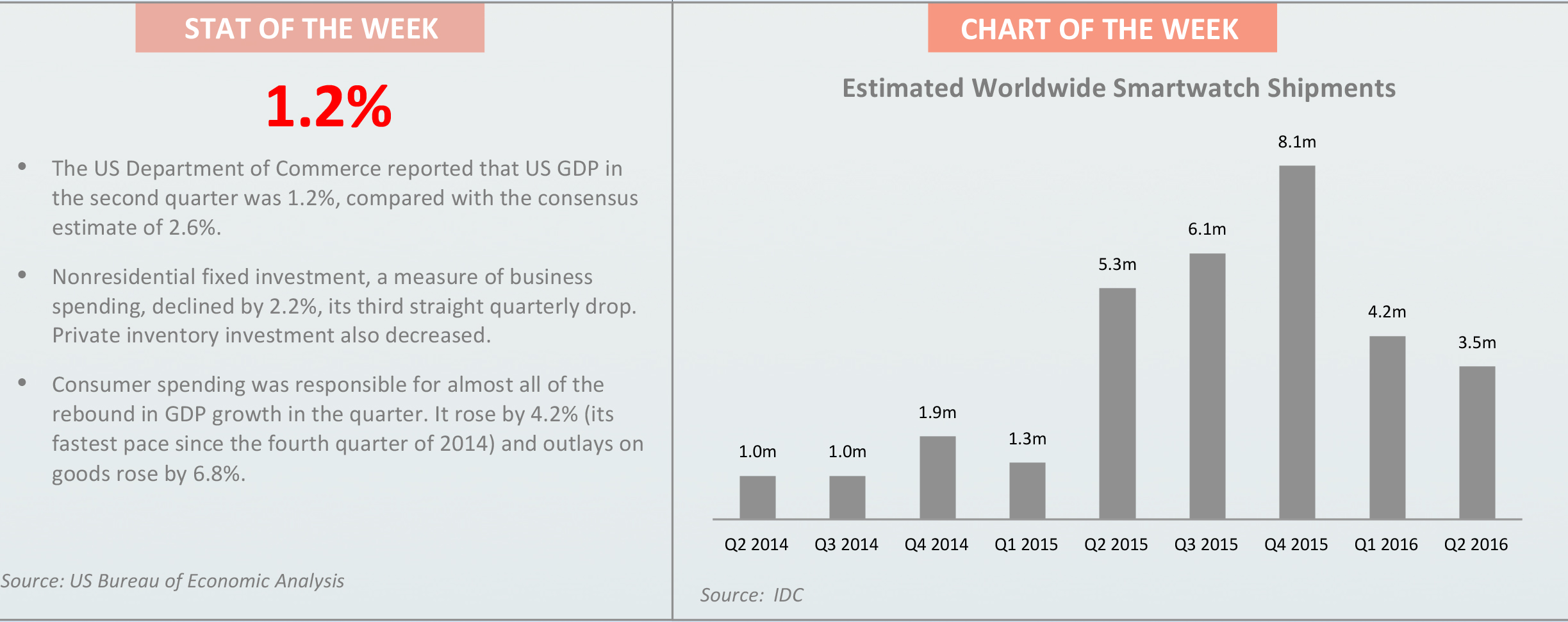
FROM THE DESK OF DEBORAH WEINSWIG
Welcome to the Pokéconomy!
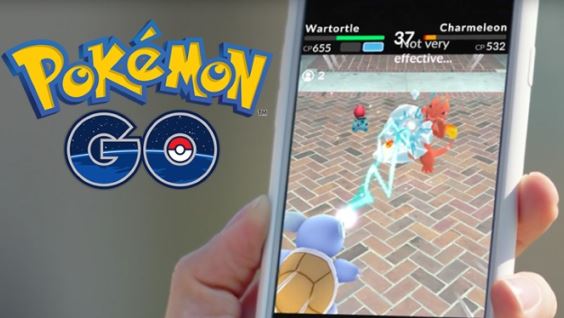
In just the last month, and more than 20 years after its initial launch,
Pokémon Go has become a global obsession, having been downloaded more than 100 million times and counting. Initially, the game was launched in just six countries, then 26 more, then, after much anticipation, in Hong Kong and Japan. Most recently,
Pokémon Go became available in Central and South America, offering some serious local competition for the Olympics, which start this Friday in Rio de Janeiro. In this letter, we take a look at the global “Pokéconomy.”
The previous versions of
Pokémon generated total revenues of $58 billion from 1995 through 2015 (averaging nearly $3 billion per year), and The Pokémon Company is still taking in annual revenues of $1.5 billion. Given that the free game app is accessible by a global smartphone installed base of more than 2 billion users (according to eMarketer), revenues from this generation of
Pokémon seem likely to blow past the $3-billion-per-year average, and there are likely more versions of the game to come.
Two clear winners in the Pokéconomy are Apple and Google, which offer the game app through their respective iOS and Android app stores. Although the app is free to download and players can obtain Poké Balls (which they “throw” at Pokémon characters in order to capture them) in the course of game play, players will likely want to visit the in-app store to purchase more Poké Balls—as well as incense, eggs, lure modules and egg incubators—unless they are an expert shot with Poké Balls. The cost of 100 PokéCoins (which can be exchanged for 20 Poké Balls) is $1.49, and 14,500 PokéCoins cost $159.99. The game’s daily revenues have recently risen to $10 million, according to app intelligence firm App Annie. Annualizing that figure means $3.65 billion a year in revenue for Apple and Google, if the level of play remains the same.
Thus far, Nintendo, the original creator of
Pokémon, has not benefited much from the boom, but that could change. Shortly after the game was launched, the company’s market value doubled, to $42 billion. However, the company cautioned investors that it holds only 32% of the voting power of The Pokémon Company and, due to accounting rules, it does not consolidate
Pokémon’s results. Nintendo does have a new gadget in the pipeline—the Pokémon Go Plus wristband—which lights up or vibrates when the player is near a Pokémon or a PokéStop, and pressing its button automatically throws a Poké Ball. The device is designed to help keep players from staring unsafely at their cellphones while walking. The accessory is priced at $35, and its shipment has been delayed until September. Some go-getters are offering guaranteed delivery of a band for $130–$200 on Amazon’s Marketplace.
There are numerous ways that retailers and individuals can benefit from jumping on the
Pokémon bandwagon. In their physical stores, many retailers have seen an increase in foot traffic (both appreciated and unwelcome) when their locations contain PokéStops or Pokémon. Retailers can create their own lures or PokéStops in order to bring players into their stores and advertise these offerings via traditional means or social media.
While it is a bit early to talk about the holiday shopping season, there could be huge opportunities for toymakers and apparel manufacturers that offer
Pokémon toys and clothing this year—although the game’s sudden resurgence of popularity has taken everyone by surprise. Last year, the US toy market was worth $19.4 billion, up 6.7% year over year, according to The NPD Group, and the market should be even bigger this year. Anything “Poké” could easily become the hot toy of the season and grab a big share of the market.
Individuals have been creating businesses around
Pokémon Go, leveraging their cleverness and abilities. Some gamers are playing the games solely for the purpose of reselling them after achieving higher levels, and developers have launched scanners, trackers and maps that help players find Pokémon more easily and give the location of the high-value Pokémon. Since playing the game is usually a solitary effort, one developer launched the PokeMatch app, which helps singles find each other while they are out seeking Pokémon. Criminals have also latched on to the attractive spots and have lain in wait for distracted players.
The meteoric success of
Pokémon Go has dropped some welcome excitement on the retail sector, which is experiencing pockets of softness in the US, the UK and elsewhere. Now, the challenge for the industry is to get those
Pokémon-themed toys and T-shirts ready for the holiday season, and to find additional ways to participate in the
Pokémon boom. Given
Pokémon Go’s huge success, there is considerable incentive for The Pokémon Company to multiply its revenues by keeping the franchise going with future versions of the game as well as spin-offs and related products.

US RETAIL EARNINGS

Source: Company reports
US RETAIL & TECH HEADLINES
 After Digital Spree, Retailers Spending on Stores Again
(August 2) Women’s Wear Daily
After Digital Spree, Retailers Spending on Stores Again
(August 2) Women’s Wear Daily
- After spending big on digital technology the last few years, retailers are once again spending on their physical stores, which produce the lion’s share of their sales. That does not mean retailers are abandoning e-commerce or omni-channel operations, but that they are looking to make smaller store bases more enticing to distracted consumers, while better powering the effort with technology.
- Retailers are focusing on their biggest and boldest stores, such as flagships, to avoid having too many stores and too much inventory. So, many are filling a smaller base of stores with more technology to engage customers.
 Nordstrom Expands: Set to Open Two Rack Stores in Canada
(August 3) Nasdaq.com
Nordstrom Expands: Set to Open Two Rack Stores in Canada
(August 3) Nasdaq.com
- Success with its full-line store in Canada has led Nordstrom to expand its Rack store base in the country. The retailer plans to open its second and third Rack stores in Canada, in Alberta and Ontario, in spring 2018.
- Nordstrom has made significant progress with its store expansion plans in Canada, which it announced in 2012. Since then, the retailer has opened three full-line stores and intends to introduce three more in the Toronto area through fall of 2017.
 Chip Card Nightmares? Help Is On the Way
(August 2) The Wall Street Journal
Chip Card Nightmares? Help Is On the Way
(August 2) The Wall Street Journal
- Transaction time using EMV cards, or chip cards, is slowly getting faster, but mobile payments seem to be the real solution to the problem. On average, a chip card payment takes 13 seconds, while a mobile payment takes only six.
- Mobile payments provide the same EMV process as chip cards—protecting your payment information—but require fewer steps. In fact, mobile payments could even be considered more secure because they require authentication—in the form of a fingerprint or PIN—from the user.
EUROPE RETAIL EARNINGS

Source: Company reports
EUROPE RETAIL HEADLINES
 Amazon Dash Available in the UK
(July 29) Retaildetail.eu
Amazon Dash Available in the UK
(July 29) Retaildetail.eu
- Online giant Amazon has launched its Amazon Dash handheld shopping device in the UK. Customers can use Dash to scan a product’s barcode and order that product on Amazon. The device is currently available only in London.
- Amazon is offering Dash for users of the recently launched AmazonFresh UK online grocery service. AmazonFresh users receive a free Amazon Dash after their second grocery order.
 Morrisons Cuts Prices by an Average of 18%
(August 1) Retailgazette.co.uk
Morrisons Cuts Prices by an Average of 18%
(August 1) Retailgazette.co.uk
- UK supermarket chain Morrisons has cut the price of 1,045 products by an average of 18% as it seeks to compete with discounters Aldi and Lidl.
- Each of the big four supermarket chains—Tesco, Sainsbury’s, Asda and Morrisons—has experienced a decline in sales in the past quarter, according to market-measurement firm Kantar Worldpanel, as strong price competition has continued in the sector.
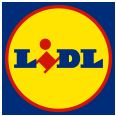 Lidl to Begin Private-Label Baby Brand Trial
(August 2) Retail-week.com
Lidl to Begin Private-Label Baby Brand Trial
(August 2) Retail-week.com
- Lidl UK is set to launch a new range of private-label baby products, called Lidl’uns. The retailer is partnering with parenting website Mumsnet in order to receive feedback from users.
- The new label is set to augment Lidl’s current Toujours range of diapers and wipes with baby food, toiletries and other nonfood items.
 Sainsbury’s Expands Offering in China
(August 1) Retailgazette.co.uk
Sainsbury’s Expands Offering in China
(August 1) Retailgazette.co.uk
- UK supermarket chain Sainsbury’s is increasing its Chinese presence by doubling the number of products it sells through the Tmall Global online platform. Sainsbury’s began selling on the platform in September last year.
- Sainsbury’s CFO John Rogers said, “Chinese online shoppers are increasingly demanding high-quality international products. Many customers also want to replicate tastes and occasions that they have enjoyed or heard about through international travel.”
 Travis Perkins Posts Robust Comps
(August 2) Company press release
Travis Perkins Posts Robust Comps
(August 2) Company press release
- Travis Perkins, the owner of DIY chain Wickes, posted comparable sales growth of 3.1% and total sales growth of 5.8% for the six months ended June 30. Adjusted pretax profit across the group stood at £184 million (US$245 million), up 10.2%.
- The results are seen as an indicator of the housing market following the UK’s referendum on EU membership on June 23. CEO John Carter commented that the company had seen weaker demand in the run-up to, and immediately following, the Brexit vote, but that there had been a gradual improvement in trading across July.
 Irish Grocery Retail Sees a Boost
(August 2) Kantarworldpanel.com
Irish Grocery Retail Sees a Boost
(August 2) Kantarworldpanel.com
- Data from market-measurement firm Kantar Worldpanel show that the Irish grocery sector grew sales by 3.3% year over year in the 12 weeks ended July 17.
- Market leader Supervalu grew sales by 3.4%, while second-place Tesco saw a 1.9% decline and third-place Dunnes Stores increased sales by 6.5%. Discounters Lidl and Aldi grew sales by 4.5% and 3.7%, respectively.
ASIA TECH HEADLINES
 Didi Chuxing to Acquire Uber in China
(August 1) Bloomberg
Didi Chuxing to Acquire Uber in China
(August 1) Bloomberg
- Didi Chuxing, the dominant ride-hailing service in China, will acquire Uber’s operations in the country. The acquisition will put Didi Chuxing’s valuation at US$35 billion.
- Didi founder Cheng Wei and Uber CEO Travis Kalanick will join each other’s boards. Uber Technologies will receive 5.89% of the combined company, with preferred equity interest equal to 17.7% of the economic benefits.
 Singapore to Embrace Driverless Taxi Testing
(August 2) TechinAsia
Singapore to Embrace Driverless Taxi Testing
(August 2) TechinAsia
- The Land Transport Authority of Singapore has been working on trials of automated vehicles for public transportation since last year, and has received eight national and international proposals, including one from the UK’s Delphi Automotive.
- Delphi hopes to launch a fully automated taxi service by 2022. It will transport passengers from their home or work to the nearest convenient public transportation station instead of ferrying them end to end as Uber does.
 Chinese Investors Buy Mobile Gaming Company Playtika
(August 1) ZDNet
Chinese Investors Buy Mobile Gaming Company Playtika
(August 1) ZDNet
- A group of 11 Chinese investors, led by China’s online games company Shanghai Giant Network Technology, acquired mobile gaming company Playtika in a deal worth US$4.4 billion.
- Playtika, sold by Caesars Interactive Entertainment, will continue to operate independently from its headquarters in Herzliya, Israel. The company’s revenues totaled US$725 million last year.
 Sony Repositions Itself, Shifting Focus to Lucrative Areas
(August 1) The Star Online
Sony Repositions Itself, Shifting Focus to Lucrative Areas
(August 1) The Star Online
- Sony reported that PlayStation 4 was its biggest growth driver in the first half of 2016. The gaming division generated half-year profits of ¥44 billion (US$435 million), up from ¥19.5 billion (US$193 million) in the first half of 2015.
- Faced with price competition from Asian rivals, Sony has shifted its expansion target from smartphones to lucrative areas such as video games, entertainment and camera sensors.
 LG to Launch New Premium Smartphone in September
(August 1) Reuters
LG to Launch New Premium Smartphone in September
(August 1) Reuters
- South Korea’s LG Electronics revealed its plan to sell a new premium smartphone, the V20, beginning in September. It is believed the new device will help improve LG’s struggling mobile business.
- LG said the V20 will be the first product to run on Nougat, Google’s latest version of the Android mobile operating system. Rivals Samsung and Apple will also introduce new products in September.
LATAM RETAIL HEADLINES
 Rio Tourism Shows Signs of Softness Ahead of Olympic Games
(August 2) The Wall Street Journal
Rio Tourism Shows Signs of Softness Ahead of Olympic Games
(August 2) The Wall Street Journal
- Ticket sales for the Olympic Games in Rio de Janeiro are lagging those of previous Olympics, and the demand for hotels and flights is also not as high as analysts had expected. As of August 1, about 79% of the tickets for the Games had been sold.
- While some say that ticket sales are fine at 79%—which is higher than the sales figures for the Athens and Atlanta Games—hotel bookings are approximately 30% lower than had been expected. In response, travel agencies are issuing deals on hotel room nights aimed at locals.
 To Foil Counterfeiters, Rio 2016 Makes Its Own Knockoffs
(August 2) Bloomberg
To Foil Counterfeiters, Rio 2016 Makes Its Own Knockoffs
(August 2) Bloomberg
- When perusing the stores selling Rio 2016 merchandise, one notices a difference between the prices and quality of goods at the store in Copacabana versus the store just down the street, because Rio 2016 has chosen to offer higher-end gear at tourist price points and to license lower-quality, cheaper goods in order to prevent sales of counterfeits.
- The two-tiered pricing system allows both tourists and domestic fans to show their Olympic love, as the Brazilian real has fallen 46% against the US dollar in the years since Rio was awarded the Games.
 CAFTA Allowance Program Does Not Lift Dominican Exports
(August 1) WWD.com
CAFTA Allowance Program Does Not Lift Dominican Exports
(August 1) WWD.com
- Since it was implemented seven years ago, the Earned Import Allowance Program has not provided enough incentives to boost Dominican apparel exports to the US market, despite its initial intention. The program is supposed to allow Dominican manufacturers to use US fabric in order to earn credit that allows eligible apparel to be shipped to the US duty free.
- Only five of the 12 firms registered for the program are using it, indicating that the program’s incentives are not sufficient to spur increases in exports to the US from the Dominican Republic.
 Olympic Cover-Up: Why You Will Not See Some Shoe Logos
(August 3) The New York Times
Olympic Cover-Up: Why You Will Not See Some Shoe Logos
(August 3) The New York Times
- Normally, the clothing that athletes wear at the Olympics serves as a marketing opportunity for athleticwear. But in track and field, some athletes do not want the world to see the logos on their shoes, and some may be prohibited by their sponsors to wear competing brands.
- Members of the US track and field team are required to wear Nike uniforms showing the familiar swoosh. However, the athletes are allowed to wear any brand of shoe that they choose, as shoes are the most important piece of equipment for prime performance in the sport.
 Number of Retail Stores in Brazil Down 17% in 18 Months
(August 3) Valor
Number of Retail Stores in Brazil Down 17% in 18 Months
(August 3) Valor
- The number of retail stores in Brazil has decreased by 17% in the past 18 months, according to Brazilian newspaper Valor. In the first half of 2016, 67,900 shops closed, following the closure of 99,000 in 2015.
- The economic crisis has hit retailers hard as growing inflation, rising unemployment and a credit crunch have caused consumers to watch their money more closely.

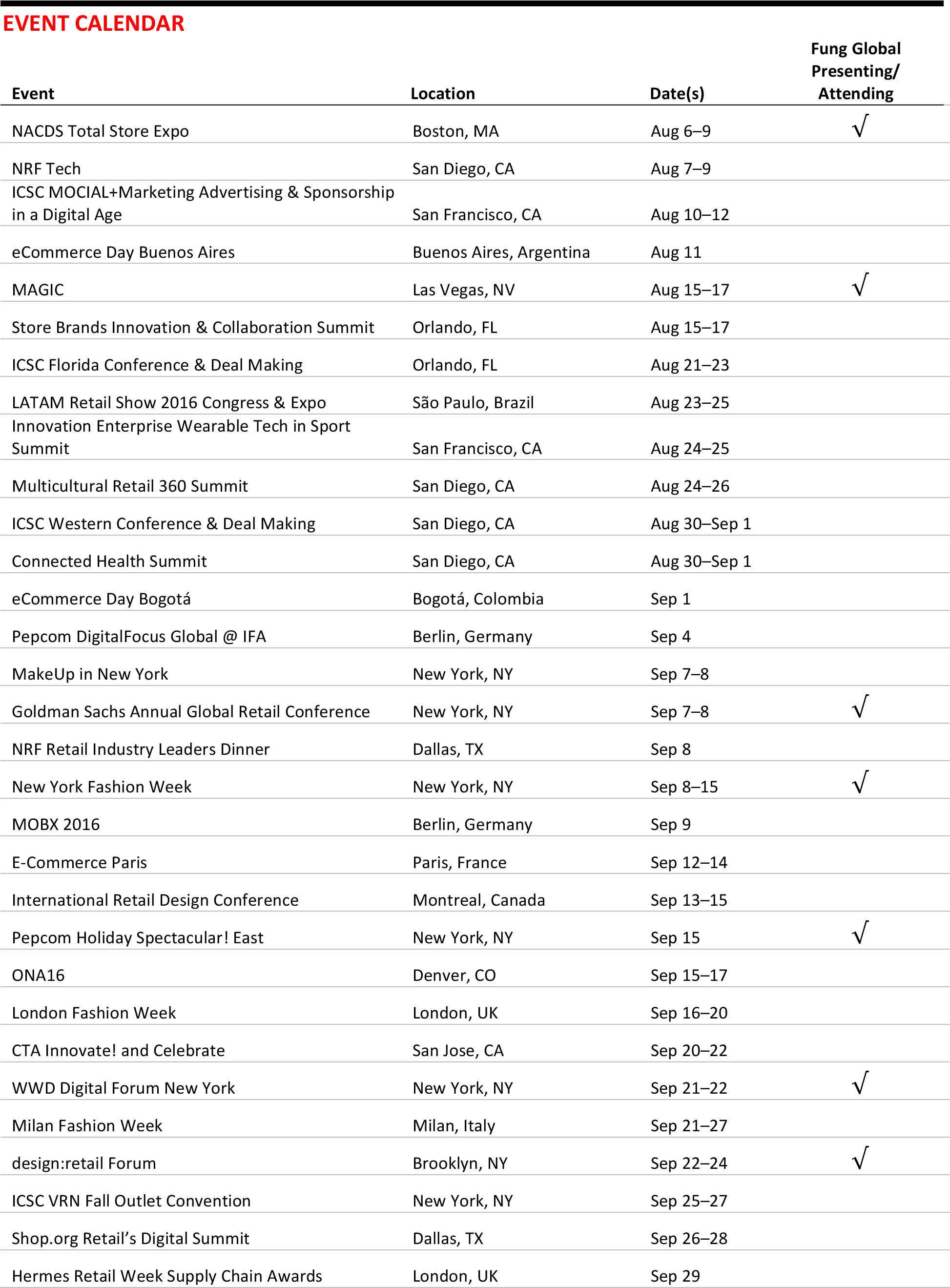
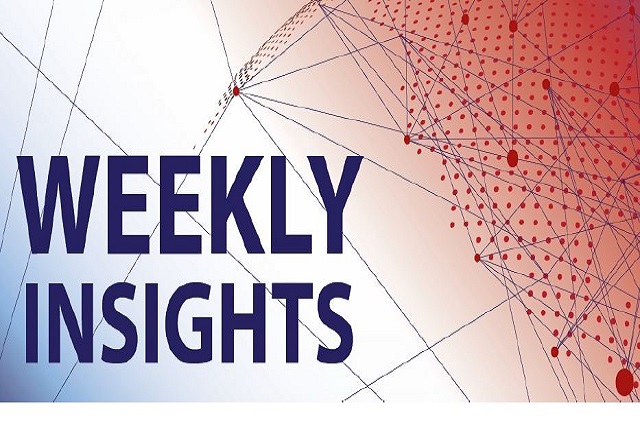

 In just the last month, and more than 20 years after its initial launch, Pokémon Go has become a global obsession, having been downloaded more than 100 million times and counting. Initially, the game was launched in just six countries, then 26 more, then, after much anticipation, in Hong Kong and Japan. Most recently, Pokémon Go became available in Central and South America, offering some serious local competition for the Olympics, which start this Friday in Rio de Janeiro. In this letter, we take a look at the global “Pokéconomy.”
The previous versions of Pokémon generated total revenues of $58 billion from 1995 through 2015 (averaging nearly $3 billion per year), and The Pokémon Company is still taking in annual revenues of $1.5 billion. Given that the free game app is accessible by a global smartphone installed base of more than 2 billion users (according to eMarketer), revenues from this generation of Pokémon seem likely to blow past the $3-billion-per-year average, and there are likely more versions of the game to come.
Two clear winners in the Pokéconomy are Apple and Google, which offer the game app through their respective iOS and Android app stores. Although the app is free to download and players can obtain Poké Balls (which they “throw” at Pokémon characters in order to capture them) in the course of game play, players will likely want to visit the in-app store to purchase more Poké Balls—as well as incense, eggs, lure modules and egg incubators—unless they are an expert shot with Poké Balls. The cost of 100 PokéCoins (which can be exchanged for 20 Poké Balls) is $1.49, and 14,500 PokéCoins cost $159.99. The game’s daily revenues have recently risen to $10 million, according to app intelligence firm App Annie. Annualizing that figure means $3.65 billion a year in revenue for Apple and Google, if the level of play remains the same.
Thus far, Nintendo, the original creator of Pokémon, has not benefited much from the boom, but that could change. Shortly after the game was launched, the company’s market value doubled, to $42 billion. However, the company cautioned investors that it holds only 32% of the voting power of The Pokémon Company and, due to accounting rules, it does not consolidate Pokémon’s results. Nintendo does have a new gadget in the pipeline—the Pokémon Go Plus wristband—which lights up or vibrates when the player is near a Pokémon or a PokéStop, and pressing its button automatically throws a Poké Ball. The device is designed to help keep players from staring unsafely at their cellphones while walking. The accessory is priced at $35, and its shipment has been delayed until September. Some go-getters are offering guaranteed delivery of a band for $130–$200 on Amazon’s Marketplace.
There are numerous ways that retailers and individuals can benefit from jumping on the Pokémon bandwagon. In their physical stores, many retailers have seen an increase in foot traffic (both appreciated and unwelcome) when their locations contain PokéStops or Pokémon. Retailers can create their own lures or PokéStops in order to bring players into their stores and advertise these offerings via traditional means or social media.
While it is a bit early to talk about the holiday shopping season, there could be huge opportunities for toymakers and apparel manufacturers that offer Pokémon toys and clothing this year—although the game’s sudden resurgence of popularity has taken everyone by surprise. Last year, the US toy market was worth $19.4 billion, up 6.7% year over year, according to The NPD Group, and the market should be even bigger this year. Anything “Poké” could easily become the hot toy of the season and grab a big share of the market.
Individuals have been creating businesses around Pokémon Go, leveraging their cleverness and abilities. Some gamers are playing the games solely for the purpose of reselling them after achieving higher levels, and developers have launched scanners, trackers and maps that help players find Pokémon more easily and give the location of the high-value Pokémon. Since playing the game is usually a solitary effort, one developer launched the PokeMatch app, which helps singles find each other while they are out seeking Pokémon. Criminals have also latched on to the attractive spots and have lain in wait for distracted players.
The meteoric success of Pokémon Go has dropped some welcome excitement on the retail sector, which is experiencing pockets of softness in the US, the UK and elsewhere. Now, the challenge for the industry is to get those Pokémon-themed toys and T-shirts ready for the holiday season, and to find additional ways to participate in the Pokémon boom. Given Pokémon Go’s huge success, there is considerable incentive for The Pokémon Company to multiply its revenues by keeping the franchise going with future versions of the game as well as spin-offs and related products.
In just the last month, and more than 20 years after its initial launch, Pokémon Go has become a global obsession, having been downloaded more than 100 million times and counting. Initially, the game was launched in just six countries, then 26 more, then, after much anticipation, in Hong Kong and Japan. Most recently, Pokémon Go became available in Central and South America, offering some serious local competition for the Olympics, which start this Friday in Rio de Janeiro. In this letter, we take a look at the global “Pokéconomy.”
The previous versions of Pokémon generated total revenues of $58 billion from 1995 through 2015 (averaging nearly $3 billion per year), and The Pokémon Company is still taking in annual revenues of $1.5 billion. Given that the free game app is accessible by a global smartphone installed base of more than 2 billion users (according to eMarketer), revenues from this generation of Pokémon seem likely to blow past the $3-billion-per-year average, and there are likely more versions of the game to come.
Two clear winners in the Pokéconomy are Apple and Google, which offer the game app through their respective iOS and Android app stores. Although the app is free to download and players can obtain Poké Balls (which they “throw” at Pokémon characters in order to capture them) in the course of game play, players will likely want to visit the in-app store to purchase more Poké Balls—as well as incense, eggs, lure modules and egg incubators—unless they are an expert shot with Poké Balls. The cost of 100 PokéCoins (which can be exchanged for 20 Poké Balls) is $1.49, and 14,500 PokéCoins cost $159.99. The game’s daily revenues have recently risen to $10 million, according to app intelligence firm App Annie. Annualizing that figure means $3.65 billion a year in revenue for Apple and Google, if the level of play remains the same.
Thus far, Nintendo, the original creator of Pokémon, has not benefited much from the boom, but that could change. Shortly after the game was launched, the company’s market value doubled, to $42 billion. However, the company cautioned investors that it holds only 32% of the voting power of The Pokémon Company and, due to accounting rules, it does not consolidate Pokémon’s results. Nintendo does have a new gadget in the pipeline—the Pokémon Go Plus wristband—which lights up or vibrates when the player is near a Pokémon or a PokéStop, and pressing its button automatically throws a Poké Ball. The device is designed to help keep players from staring unsafely at their cellphones while walking. The accessory is priced at $35, and its shipment has been delayed until September. Some go-getters are offering guaranteed delivery of a band for $130–$200 on Amazon’s Marketplace.
There are numerous ways that retailers and individuals can benefit from jumping on the Pokémon bandwagon. In their physical stores, many retailers have seen an increase in foot traffic (both appreciated and unwelcome) when their locations contain PokéStops or Pokémon. Retailers can create their own lures or PokéStops in order to bring players into their stores and advertise these offerings via traditional means or social media.
While it is a bit early to talk about the holiday shopping season, there could be huge opportunities for toymakers and apparel manufacturers that offer Pokémon toys and clothing this year—although the game’s sudden resurgence of popularity has taken everyone by surprise. Last year, the US toy market was worth $19.4 billion, up 6.7% year over year, according to The NPD Group, and the market should be even bigger this year. Anything “Poké” could easily become the hot toy of the season and grab a big share of the market.
Individuals have been creating businesses around Pokémon Go, leveraging their cleverness and abilities. Some gamers are playing the games solely for the purpose of reselling them after achieving higher levels, and developers have launched scanners, trackers and maps that help players find Pokémon more easily and give the location of the high-value Pokémon. Since playing the game is usually a solitary effort, one developer launched the PokeMatch app, which helps singles find each other while they are out seeking Pokémon. Criminals have also latched on to the attractive spots and have lain in wait for distracted players.
The meteoric success of Pokémon Go has dropped some welcome excitement on the retail sector, which is experiencing pockets of softness in the US, the UK and elsewhere. Now, the challenge for the industry is to get those Pokémon-themed toys and T-shirts ready for the holiday season, and to find additional ways to participate in the Pokémon boom. Given Pokémon Go’s huge success, there is considerable incentive for The Pokémon Company to multiply its revenues by keeping the franchise going with future versions of the game as well as spin-offs and related products.


 Chip Card Nightmares? Help Is On the Way
(August 2) The Wall Street Journal
Chip Card Nightmares? Help Is On the Way
(August 2) The Wall Street Journal

 Morrisons Cuts Prices by an Average of 18%
(August 1) Retailgazette.co.uk
Morrisons Cuts Prices by an Average of 18%
(August 1) Retailgazette.co.uk
 Lidl to Begin Private-Label Baby Brand Trial
(August 2) Retail-week.com
Lidl to Begin Private-Label Baby Brand Trial
(August 2) Retail-week.com
 Chinese Investors Buy Mobile Gaming Company Playtika
(August 1) ZDNet
Chinese Investors Buy Mobile Gaming Company Playtika
(August 1) ZDNet

